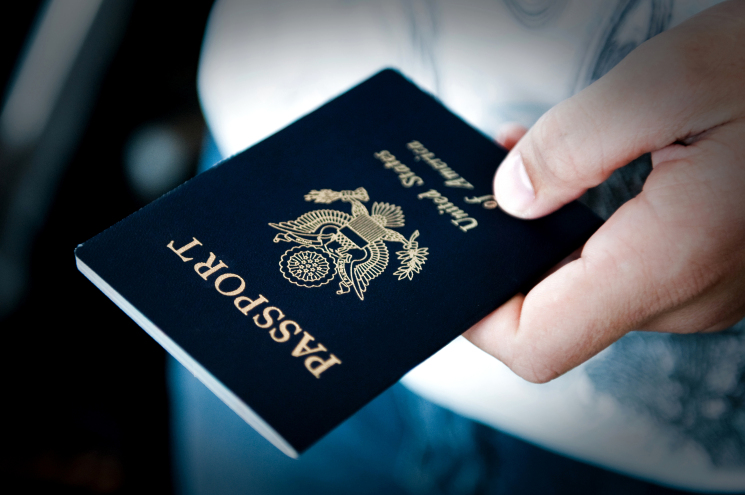Pay Zero Income Tax the Legal Way
The internet is filled with Idiots selling scam programs that will teach you how to pay zero income tax. They’re all full of BS and infuriate those of us who try to write about legal ways to protect your assets and minimize your income taxes. In this article I’ll talk about the only legal ways to pay zero income tax on your business and capital gains offshore.
This post is meant for US citizens or green card holders willing to do what it takes to reduce or eliminate their US taxes.
I’ll tell you upfront that paying zero income tax the legal way is VERY difficult. It takes a lot of work and commitment on your part. There are no tricks or easy solutions. To pay zero income tax requires moving you and your business out of your comfort zone… not necessarily out of the United States… but, I’ll get to that in a bit.
And I’m not talking about retirement accounts or other US methods for reducing or deferring US tax. I’ll assume you’re making too much money to benefit from those accounts or that you already have your IRA and 401-k plans setup.
As I said, the web is filled with scam artists pitching all kinds of ways avoid US taxes. Tax lawyers call these guys tax protestors (and morons) and they refer to themselves as sovereign citizens. They’re using straw man companies and sham trusts to claim they earn no “income.”
I won’t get into these bogus arguments because they’ve been debunked time and time again. At this point, tax protestors are just a sad commentary on how gullible some people are. These cases are so cut and dry that lawyers can be sanctioned for wasting the court’s time.
Another issue to watch out for when searching the web are claims that you can operate tax free in a foreign country. These are true statements by providers in the country where you will incorporate… but meaningless to US citizens.
For example, you call a lawyer in Panama to set up a corporation there. You ask them if your structure will pay any tax… and they say no, it does not. It’s totally tax free! They’re talking about the tax laws of Panama. That’s great but, as a US citizen, you’re focused on US tax laws because that’s your real risk.
The provider in Panama is not trying to mislead you. He’s simply telling you the law of his country. He’s an expert in Panamanian law, thus his comments are limited to that country. This is why you always need a quarterback in the US who can show you how US tax laws interact with those of the foreign jurisdictions you’re setting up in.
There are basically four legal ways to eliminate US tax by going offshore. They are:
- Offshore captive insurance,
- Offshore life insurance,
- Set up a division of your business offshore, and
- Move to Puerto Rico to eliminate capital gains tax.
Offshore Captive Insurance Company
An offshore captive insurance company allows you to provide insurance to your active business. You form an offshore captive insurance company in Bermuda, Cayman or Belize, and insure against risks not covered by your traditional policies.
As of 2017, the US IRS will allow you to deduct up to $2.2 million of insurance premiums paid to an offshore captive insurance company owned by you. For previous years, the amount was $1.2 million.
By insuring against risks with a low probability of occurring, you effectively move $2.2 million of pre-tax income off of your corporate books in the US and onto an offshore captive insurance company. These transfers then accumulate offshore tax deferred until you close down the structure.
For more, see: The Mini Offshore Captive Insurance Company. This article was written before the deductible amount was increased from $1.2 to $2.2 million.
Offshore Life Insurance
Offshore life insurance, typically offshore private placement life insurance basically allows you to create an “offshore ROTH” without any of the contribution limits or distribution requirements.
You can put as much after tax money into an offshore life policy as you like and it will remain in the plan tax deferred. That is to say, you will pay zero tax on capital gains inside the life policy so long as the plan is active.
If you decide to shut it down and take a distribution, you will pay US tax on the increase in value. If you leave the policy in place until your death, the value will pass to your heirs tax free. Neither you nor they will ever pay US tax on the gains because of the step-up in basis they receive.
You also have the choice of borrowing against the policy. If you need access to the cash, you can take out a loan.
The minimum investment for these offshore life policies is usually between $1.2 to $2.5 million depending on the provider and other factors. For more, see: Benefits of Private Placement Life Insurance.
Offshore Business
If you move you and your business offshore, you can earn up to $200,000 a year tax free. If you move a division of your business offshore, you can get tax deferral on any foreign sourced profits that business generates.
If you move abroad and qualify for the Foreign Earned Income Exclusion, you can earn $102,100 per year free of Federal income tax from your offshore business. If a husband and wife are both working in the business, and both qualify for the Exclusion, you can take out over $200,000 combined.
To qualify for the Exclusion, you need to 1) be a resident of a foreign country and out of the US for about 5 months a year, or 2) out of the US for 330 out of 365 days. It’s much easier to qualify for the FEIE as a resident, so I strongly recommend you consider one of the easy and low cost second residency programs.
For example, you can become a resident of Panama with an investment of $20,000 and Nicaragua for $35,000. Panama is the easiest because this one doesn’t have a physical presence requirement. For more, see: Best Panama Residency by Investment Program.
If you’re not ready to move you and your family offshore, but can setup a division of your business offshore, then you can defer US tax on income attributable to that division.
Assuming your offshore team can operate independently, income they generate should be eligible to be held in the offshore corporation tax deferred. When you take it out as a dividend, either personally or as a transfer to the parent company in the US, you will pay US tax. For more, see: Step by Step Guide to Taking Your Business Offshore
Move to Puerto Rico
Even if you go offshore, you’re still going to pay US tax on your capital gains. So long as you hold a US passport, the IRS wants it’s cut of your investment profits. The only exceptions are investments inside a US compliant life insurance policy (described above) and capital gains for residents of Puerto Rico.
When an American moves to a foreign country, they’re subject to US Federal Income Tax laws. All US citizens and green card holders must pay unto the IRS.
The only individuals exempted from this rule are residents of the US territory of Puerto Rico. US Tax Code Section 933 excludes residents of Puerto Rico from US Federal tax laws. This means that Puerto Rico is free to create it’s own tax system, which it has done.
If you set up a service business in Puerto Rico, one with at least 5 employees on the island, you can qualify for a 4% tax rate on your Puerto Rico sourced income. To see how this compares to the FEIE, see: Panama vs Puerto Rico.
EDITORS NOTE: On July 11, 2017, the government of Puerto Rico did away with the requirement to hire 5 employees to qualify for Act 20. You can now set up an Act 20 company with only 1 employee (you, the business owner). For more information, see: Puerto Rico Eliminates 5 Employee Requirement
Even better, if you move to Puerto Rico, spend a minimum of 183 days a year on the island, and otherwise qualify for their Act 22, you’ll pay zero tax on your capital gains. That’s right, without any of the costs or limitations associated with a private placement life insurance policy, those willing to live in an island paradise can pay zero income tax on their capital gains.
For more on how to pay zero tax in Puerto Rico, see: How to stop paying capital gains tax.
Conclusion
I hope you’ve found this article on how to pay zero income tax legally to be helpful. For more information, and a consultation, please contact us at info@premieroffshore.com or call (619) 483-1708. We’ll be happy to assist you to structure your affairs offshore in a tax compliant manner.












Leave a Reply
Want to join the discussion?Feel free to contribute!